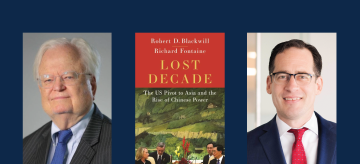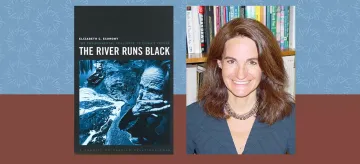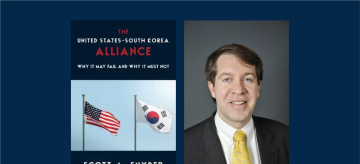Search 74 results
- Remove filter: College
- Remove filter: Book Guide
Filter by
Events
Series

Henry Wallace is the most prominent progressive American political figure of the 1940s—one who very nearly became president at a critical moment in U.S. and world history. Benn Steil’s fascinating “What if?” study of Wallace’s eventful career, based on troves of new Russian and FBI archival finds, sheds an important new light on how U.S. and Soviet foreign policy were forged at the dawn of the Cold War.

If You Will It analyzes the problems facing the American Jewish community today, and describes the steps needed to rebuild a sense of peoplehood—of Jewish identity and common purpose. The relationship between American Jews and Israel is at the heart of this book.

Lost Decade is an essential guide for understanding the historic shift to Asia-centric geopolitics and its implications for the United States’ present and future, offering a comprehensive analysis of how the U.S. pivot to Asia was intended to counterbalance China’s growing influence. The book delves into the strategic missteps and successes of this policy, providing valuable insights into the geopolitical landscape and the necessary adjustments for future U.S. foreign policy in the Indo-Pacific region.

In Realism and Democracy: American Foreign Policy after the Arab Spring, Elliott Abrams tells a personal story of the development of U.S. human rights policy in the last forty years and makes an argument, both "realist" and principled, for supporting the expansion of democracy in the Middle East.

In this book, CFR Senior Fellow Elizabeth C. Economy uses historical research, case studies, and interviews with officials, scholars, and activists in China to provide insightful analysis of the economic and political roots of China’s environmental challenge as well as the evolution of the leadership’s response. Teaching notes by the author.

The U.S.-South Korea alliance has been the cornerstone of bilateral cooperation and the U.S. security presence in the Indo-Pacific region for over seven decades and continues to serve as a model of partnership amid a growing range of challenges. Nevertheless, the rise of exclusive nationalism guided by “America First” or “Korea first” leadership that places national self-interest above alliance-based cooperation on shared challenges represents a point of vulnerability for the relationship. Combined with deepening political polarization in both countries, the cohesion and resilience of the U.S.-South Korea alliance may come under threat.
The United States–South Korea Alliance: Why It May Fail and Why It Must Not analyzes the internal and external threats to the alliance. It explores how a weakened U.S.-South Korea alliance could impact the security strategies of both countries and the broader security landscape in Northeast Asia. Additionally, it hypothesizes a future without the U.S.-South Korea alliance, shedding light on its potential impact and implications for U.S. and South Korean security strategies. Based on the analysis, the author concludes by offering valuable recommendations to the United States and South Korea for preserving and sustaining the alliance.
This book is suitable for the following disciplines in undergraduate and graduate courses:
- International Relations
- East Asian Studies and History
- Contemporary East Asian Foreign Relations
- Asian Security

A provocative guide to how we must reenvision citizenship if American democracy is to survive.

In Red Team, CFR Senior Fellow Micah Zenko provides an in-depth investigation into the work of red teams, revealing the best practices, most common pitfalls, and most effective applications of these modern-day devil’s advocates.

In Beijing's Global Media Offensive: China’s Uneven Campaign to Influence Asia and the World, CFR's Joshua Kurlantzick analyzes China's attempts to become a media, information, and influence superpower, seeking for the first time to shape the domestic politics, local media, and information environments of the United States, East Asia, parts of Europe, and the broader world.

In North Korea’s Foreign Policy: The Kim Jong-un Regime in a Hostile World, CFR’s Scott A. Snyder and University of British Columbia’s Kyung-Ae Park offer a robust examination of North Korean foreign policy under Kim Jong-un, including its domestic drivers, summitry diplomacy, and nuclear program.